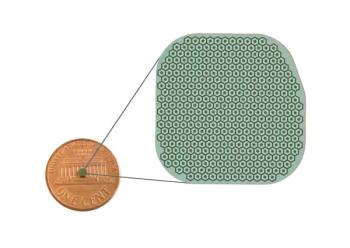
AMD patients respond to aflibercept treatment
A study recently published in the British Journal of Ophthalmology found that patients with exudative age-related macular degeneration (AMD) who were incomplete responders to multiple ranibizumab injections (Lucentis, Genentech) saw improvements with aflibercept (Eylea, Regeneron) treatment.
A
The study aimed to determine the efficacy of 2.0 mg aflibercept in the management of patients with recalcitrant exudative AMD. Patients were seen monthly and were given the aflibercept treatment at baseline, and at months one, two, and four. Retreatment was given at months three and five as needed based on SD-OCT. After six months, researchers looked at the mean change in Early Treatment Diabetic Retinopathy Study best corrected visual acuity (ETDRS BCVA) and central subfield thickness (CST); mean number of aflibercept injections; percentage of PRN injections required, patients with no fluid on SD-OCT, and patients losing fewer than 15 letters.
According to researchers, the study found that aflibercept 2.0 mg treatment maintained mean visual acuity improvements previously achieved with high-dose 2.0-mg ranibizumab injections in recalcitrant wet AMD patients. The treatment led to significant anatomic improvement and was required monthly in most patients.
Newsletter
Want more insights like this? Subscribe to Optometry Times and get clinical pearls and practice tips delivered straight to your inbox.




























